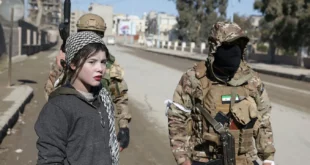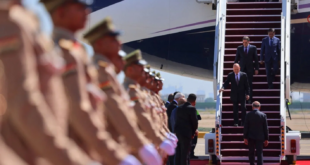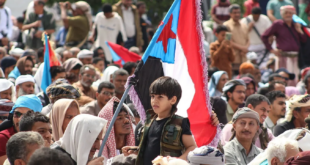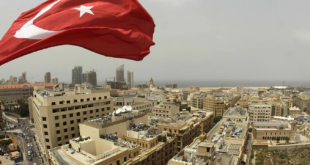US Special Envoy Tim Lenderking said Washington remains concerned by Tehran’s continued military support for the Houthi movement in Yemen.
The recent rapprochement between Saudi Arabia and Iran hasn’t stopped Tehran from sending weapons to Yemen’s Houthi rebels, US Special Envoy for Yemen Tim Lenderking said Thursday.
Tehran and Riyadh, which back opposing sides in Yemen’s civil war, agreed in March to resume diplomatic relations and reopen their respective embassies shuttered in 2016. Lenderking told reporters that the United States welcomes the China-brokered agreement but remains concerned by Iran’s role in war-torn Yemen.
“They have armed and trained and equipped the Houthis to fight and attack Saudi Arabia,” Lenderking said. “These attacks have not taken place for over a year, but the Iranians have continued to smuggle weaponry and narcotics toward the conflict.”
The United States has long accused Iran of supplying weapons to the Houthi rebels in Yemen, where a civil war has displaced hundreds of thousands of people since 2014 and pushed what was already the Arab world’s poorest country to the brink of famine.
In recent months, the US and allied naval forces have intercepted a number of arms shipments along maritime routes they say are used for smuggling weapons from Iran to Yemen in violation of a United Nations arms embargo imposed in 2015. In a first-of-its-kind seizure, the US Navy in November intercepted a vessel in the Gulf of Oman with enough aluminum perchlorate onboard to fuel more than a dozen medium-range ballistic missiles.
Iran denies providing arms and training to the militant group, which seized the Yemeni capital, Sanaa, in 2014 and expelled the internationally recognized government. A military coalition led by Saudi Arabia intervened in 2015 in what became a grueling proxy war between Tehran and Riyadh.
Since a six-month-long ceasefire collapsed in October 2022, the United States and United Nations have pushed for a more comprehensive peace agreement among Yemen’s warring sides. In a sign of progress last month, a Saudi delegation that included the kingdom’s ambassador to Yemen, Mohammed Al-Jaber, held rare talks with the Houthis in Sanaa. Also fueling optimism was the United Nations-brokered release of nearly 900 detainees held by the Houthis and internationally recognized Yemeni government.
During a visit to Saudi Arabia on Sunday, US national security adviser Jake Sullivan met with Saudi Crown Prince Mohammed bin Salman to discuss what the White House called “significant progress” in Yemen peace efforts.
The Saudi-Iran deal has raised hopes for ending Yemen’s eight-year-long war. But Lenderking, who traveled to Oman and Saudi Arabia earlier this month, cautioned that the “Saudi-Iran agreement alone will not bring peace to Yemen.”
“There are internal tensions and divisions within the society that have helped fuel this conflict, that don’t really have anything to do with Saudi Arabia and Iran,” he said.
Other Yemeni actors with long-standing grievances, including the government’s Presidential Leadership Council and the Emirati-backed Southern Transitional Council, were not included in the Saudi-Houthi negotiations that occurred in mid-April.
 Eurasia Press & News
Eurasia Press & News




